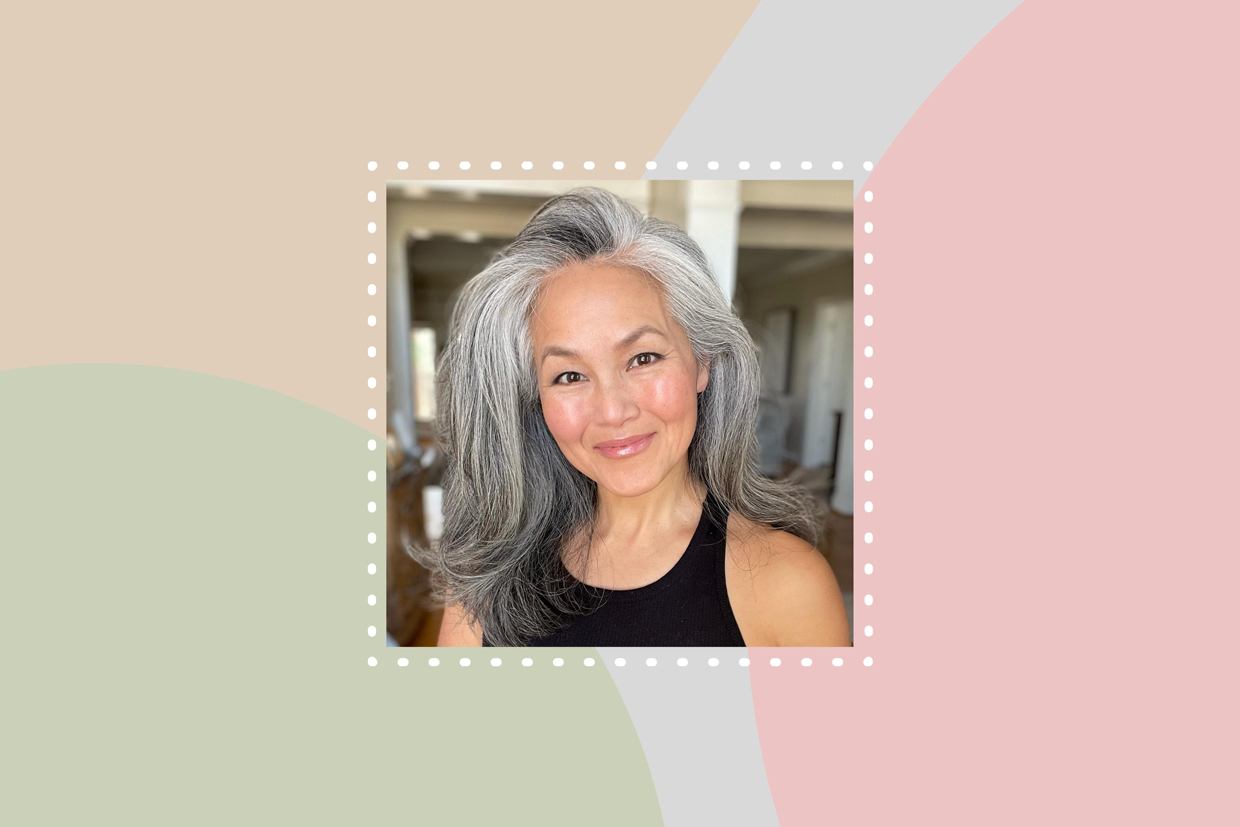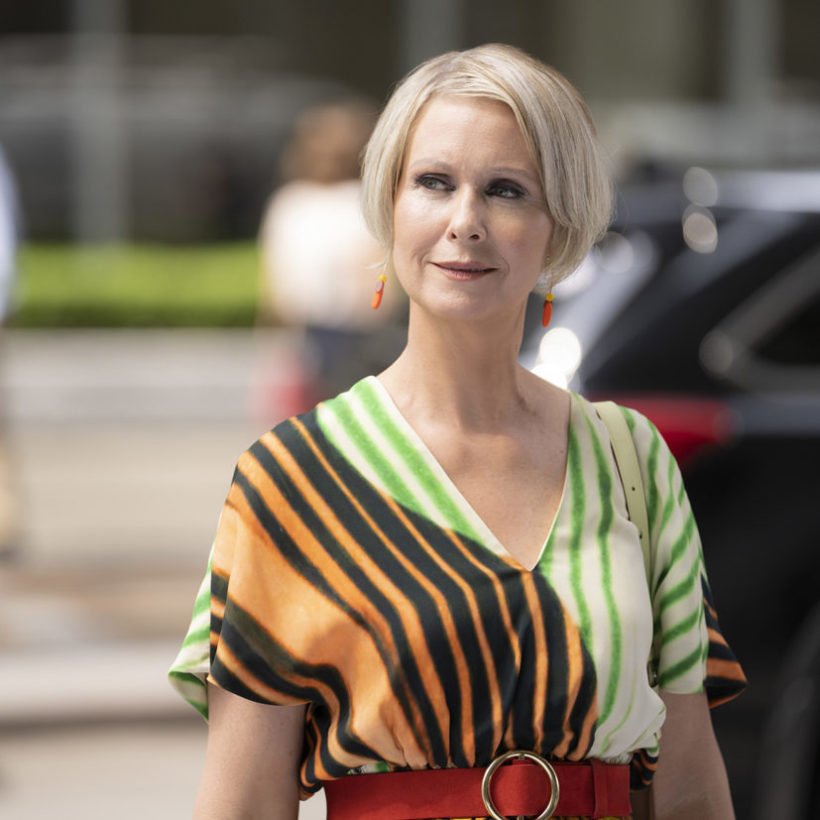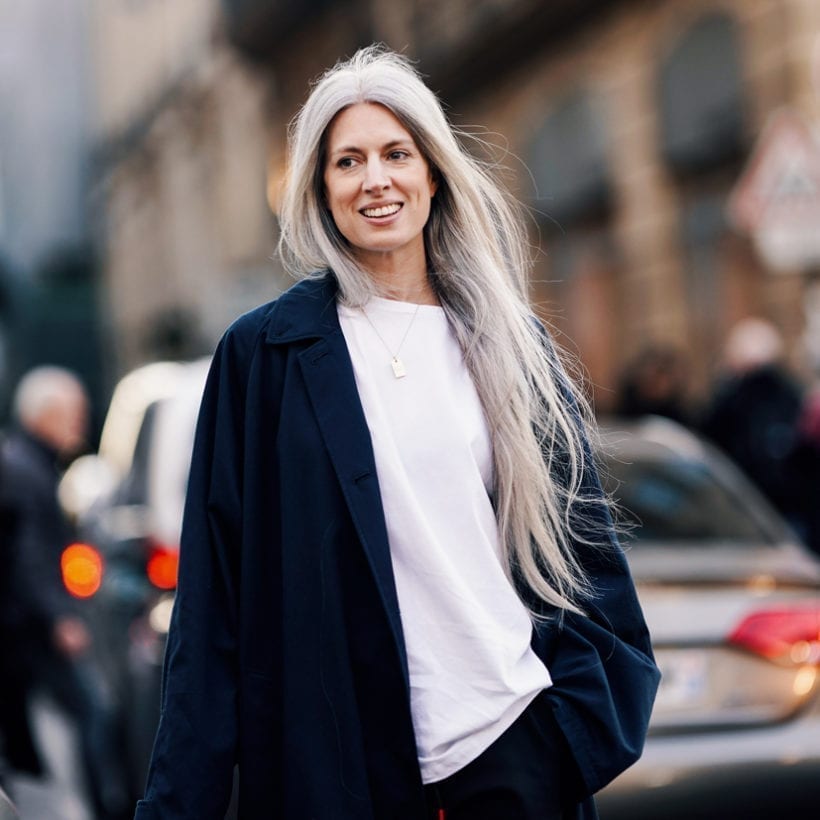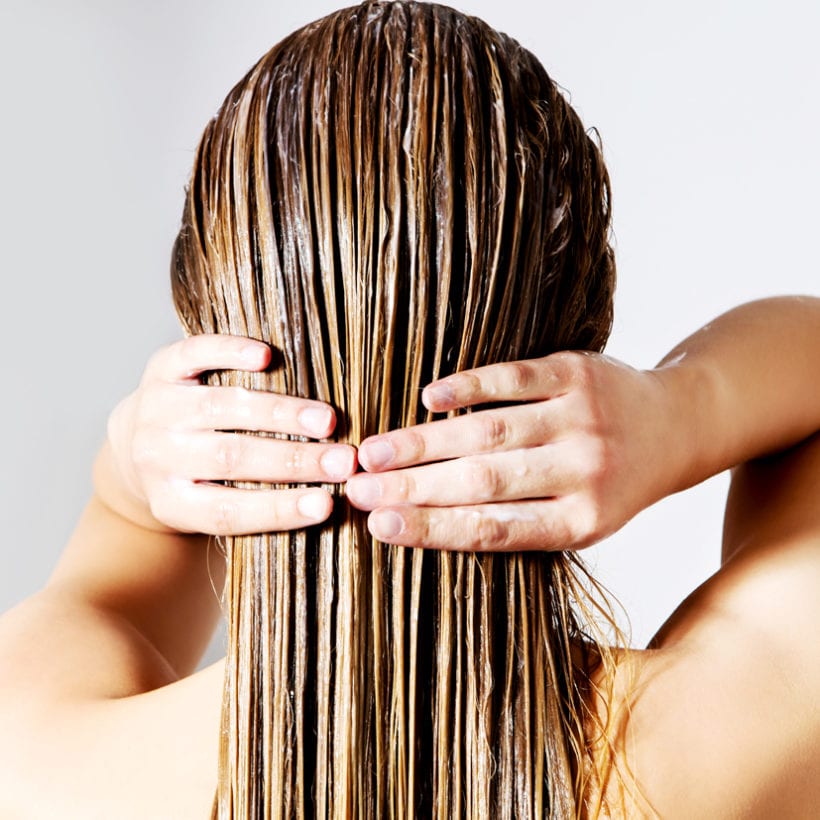You’ve all heard the saying: Pluck one gray hair, and two will grow back. For the record, it’s an old wives’ tale, but it’s one of the ways our society feeds the stigma of a sense of shame and fear around going gray.
However, you may have noticed that gray hair is starting to redeem itself. Perhaps it’s thanks to the pandemic, where people’s work-from-home lifestyles no longer warrant the cost or the time it takes to maintain dye jobs. Or, maybe some of us are just over the double standard that men are “silver foxes” when they start to go gray and women feel pressure to color and cover them up.
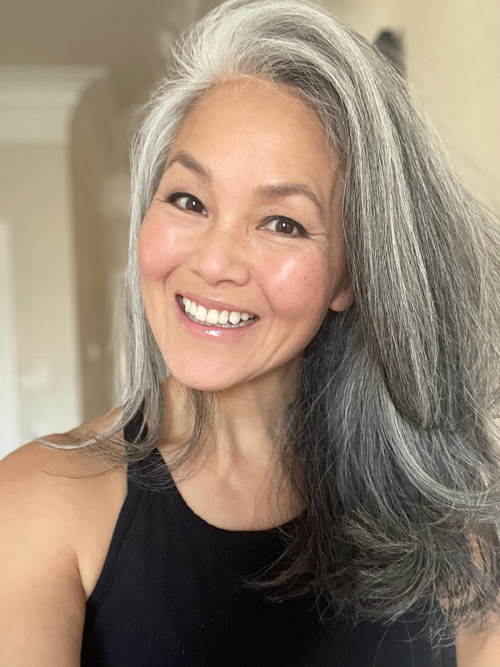
The natural hair movement is being paved by “Silver Sisters” like Jin Cruce of @agingwithstyleandgrays. What began as a way to document her gray hair transition became a community of over 680K followers who are inspired by the way she celebrates her natural gray growth. “I feel like I have a lot more freedom with my gray hair,” she says. Below, we get into the motivation behind her hair journey, the most surprising part about going gray, and the confidence she gained along the way.
The Edit: When did you first start noticing your grays?
Jin Cruce: Probably in my late twenties. My parents always colored their hair, so when I started going gray, it wasn’t a big deal. I just thought, I’ll color my hair like my parents. So, I did that for over 20 years, and then I got to the point where I was having to color every two weeks. It was a hassle, but every time I attempted to go natural, I would always go back to coloring it. It wasn’t really because I was afraid of what other people would say, but it was more about the unknown. Of course, there was my mom, too, who I think was a little bit embarrassed to be seen with me when I had grays. You don’t see a lot of Koreans — or Asians in general — who let their hair go gray.
What was the turning point for committing to your gray hair?
JC: As I’ve gotten older, I started reflecting on my life more and my purpose. For a long time I was on autopilot — just surviving. I took care of my family, went to work, and repeated. Then, at around 50 years old, I found out I was going to be a grandmother, which was unexpected at the time. It made me think about my life and raising my two girls. I always thought that I wasn’t very emotionally available for them [when they were growing up] because I was always working, working, working. It made me think about what kind of grandmother I want to be. So I decided to commit to going gray to be a good role model for my grandsons — to prove that you can be comfortable with yourself whether that’s going gray or something else.
What was starting your natural hair color journey like?
JC: I did follow a few other ‘Silver Sisters’ on social media to inspire me. However, in real life, I was the only one in my circle that was going gray. I was curious about how I’d deal with the demarcation line between the gray hair and my black hair. I pulled my hair into a ponytail for about a year and a half so the focus was more on my face and not on my hair. I didn’t spend too much time in front of a mirror trying to style it. I put a little makeup on, and I was out the door.
Did people’s negative opinions about your gray hair ever affect your confidence?
JC: I try to not take it personally. I see people all day long since I work as a pharmacist and I’m pretty sure they’ve given me weird looks sometimes. I had a customer who told me I had really aged once he noticed the grays. But even though you may not feel confident, you just have to stand tall, keep your head up, say, this is me, and move on. I was certain in my decision, and I could see if you’re not sure in your process then the negative comments would get to your head. But for me, I laughed them off.
What do you think was the most surprising part about going gray?
JC: It was only after I fully transitioned to gray that I started to style my hair again. It was then I realized that certain clothing colors didn’t flatter me as much as they once did when I had all-dark hair. I wear a lot more black now and stay away from too many patterns and designs in my clothing because it competes with my hair. My hair isn’t all solid gray — it’s a mix of black, gray, and white. So I tend to stick to solid colors with clothes. I also don’t need to wash my hair as often anymore. I can go three or four days without shampooing but when I do, I focus on hair cleansers that are moisturizing and hydrating because my hair is coarse.
There’s this idea that once you reach a certain age, you not only should dye your hair but cut it shorter. What are your feelings about long hair and aging?
JC: I think people should do what makes them happy and what makes them feel good. I’m not about following the “rules,” because I personally don’t think short hair looks good on me. I know many older women tend to cut it once they feel like their hair gets thinner. But I think the priority should be yourself and what you feel confident in.
What’s your skincare and makeup philosophy?
JC: It’s pretty simple. As a young girl, I remember watching my mom take care of her skin, and she was always moisturizing. She would never get out in the sun, or if she did, she made sure her skin was covered up, or she’ll have an umbrella with a hat. I’ve watched my mom really take care of her skin. So even at an early age, I always made sure that I used some kind of moisturizer, and always wore SPF. I don’t have to be out in the sun too long for my skin to get dark. I don’t change out my beauty products often unless it is a different season. If something works for me, I will use it for a while. I’m very loyal to my makeup, too. I did Clinique for a while, and now Bobbi Brown as I’ve gotten older. She came out with a new line called Jones Road and her approach is that no-makeup makeup look, which I really love. With my gray hair, I feel like my face needs slightly more color. Now, I’m using bolder lipstick than I used to. But I do think great skin is more than the products you use, too. When I get a good night’s rest, my skin always looks better in the morning. I’ve decreased my stress levels with exercise and eating more fruit to make sure I get my vitamin C.
What’s your advice for people thinking about going gray but struggling with the transition?
JC: Just take one step in front of the other and don’t pay too much attention to your hair now. You can do what I did and pull it up in a ponytail, so you’re not distracted by it. If this is what you really want to do, keep going, but if you decide you don’t want to do it and color it back, then that’s your choice. If that’s what makes you happy, no judgment here.
We only recommend products we have independently researched, tested, and loved. If you purchase a product found through our links, Sunday Edit may earn an affiliate commission.
